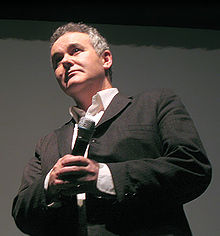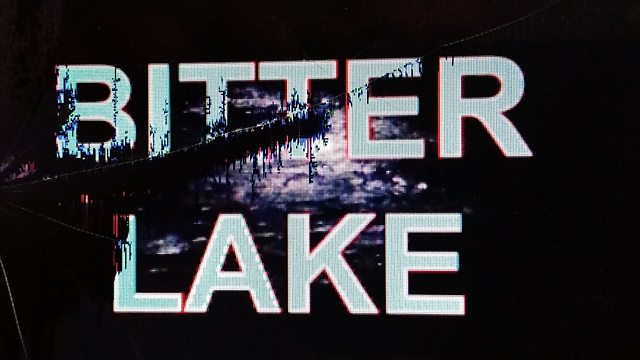
For this unit we have been commissioned (hypothetically) by the eden channel to produce a ten minute nature documentary regarding the theme of "doorstep nature", nature found on our collective doorsteps. To facilitate continuous style and formatting I have researched the channel and in this short post I will expand upon what I discovered about the eden channel.
eden is a cable and satellite television channel owned, and launched by the UKTV network, eden is available on all television services in the UK and N. Ireland, excepting the national terrestrial digital service, Freeview and, the now defunct terrestrial analogue service. hence the distinction of "Cable and Satellite".
history(bullet points)
- Launched on March 8, 2004 as "UKTV Documentary", the channel originally aired only third party content, most of it from the BBC.
- The initial programming came from the preceding documentary channel in the UKTV catalog, Horizons.
- re-branded in 09' to its current brand of eden, this marked a change of focus from a wide focus upon documentaries in general to its current focus upon nature and the environment.
channel identity and ident:
The current Eden identity features explorers in an unknown environment, such as the deep jungle or the Antarctic, before coming across a landscape, which the logo then forms onto. this expresses their current focus and presents a clear view of their identity through their channel Ident'. this is reflected in their website(See below), and their programming.
eden's programming is all supportive of their identity as a channel, the vast majority focus upon nature, many examples of "extreme travelogues", the science behind nature(biology and evolution), and some examples of shows about the wider universe. (See bottom of post for full list)
audience breakdown:
While I have not been able to find the precise statistics for the channel, however I have found information(from the BARB Annual viewing report) that in 2015, Documentaries provided 12.2 percent of UK(&NI) audiences with entertainment(LINK Page 34, slide 18). unfortunately this is not indicative of eden's actual viewing figures, however it does show the audience share that documentaries in a wider sense fill.
Programming list:
10 Things You Didn't Know About... BBC Four 2007-2008Africa BBC One 2013
An African Journey with Jonathan Dimbleby BBC Two 2010
Animal Armageddon Animal Planet (United States) 2009
Amazing Planet National Geographic Channel (United States) 2007
Amazon BBC Two 2008
Arctic with Bruce Parry BBC Two 2011
Are We Changing Planet Earth? BBC One 2006
Ask Attenborough Eden 2011
Attenborough and the Giant Egg BBC Two 2011
Australia: The Time Travellers Guide ABC1 (Australia) 2012
The Ballad of Big Al BBC One 2000
BBC Wildlife Specials BBC One 1995–present
The Bear Family & Me BBC Two 2011
Bang Goes the Theory BBC One 2009–present
Biggest and Baddest with Niall McCann Animal Planet 2012-2014
Blood and Guts: A History of Surgery BBC Four 2008
The Blue Planet BBC One 2001
The Brain: A Secret History BBC Four 2011
Charles Darwin and the Tree of Life BBC One 2009
Chased by Dinosaurs BBC One 2002
The Code BBC Two 2011
David Attenborough's Natural Curiosities Eden
Watch 2013–present
Deadly 60 CBBC 2009-2012
Death of a Sea Monster National Geographic Channel (United States) 2011
Deserts and Life Eden 2012
Dino Stampede BBC Two 2011
Do We Really Need the Moon? BBC Two 2011
Earthflight BBC One 2011-2012
Earth: The Power of the Planet BBC Two 2007
Eden Shorts: From Lens to Screen Eden 2015
Equator BBC Two 2006
Expedition Borneo BBC One 2007
Favourite Attenborough Moments UKTV Documentary 2006
First Life BBC Two 2010
Frozen Planet BBC One 2011
Galápagos BBC Two 2006
Ganges BBC Two 2007
Great Barrier Reef BBC Two 2012
The Great Rift: Africa's Wild Heart BBC Two 2010
Hainan Adventure with Nigel Marven Eden 2012
Himalaya with Michael Palin BBC One 2004
Horizon BBC Two 1964–present
How to Grow a Planet BBC Two 2012
Human Planet BBC One 2011
Humpbacks: From Fire to Ice ABC1 (Australia) 2008
The Incredible Human Journey BBC Two 2009
Inside Nature's Giants Channel 4 2009–present
Inside the Human Body BBC One 2011
James May's Things You Need To Know BBC Two 2011–present
Killer Whale Islands with Nigel Marven Channel 5 2007
Last Chance to See BBC Two 2009
Life in Cold Blood BBC One 2008
Life in the Freezer BBC One 1993
Life in the Undergrowth BBC One 2005
The Life of Birds BBC One 1998
The Life of Mammals BBC One 2002–2003
Life on Earth BBC Two 1979
Life on Fire Arte (France) 2009-2010
Life BBC One 2009
Lion Country ITV 2010–2011
The Living Planet BBC One 1984
Lost Land of the Jaguar BBC One 2008
Lost Land of the Tiger BBC One 2010
Lost Land of the Volcano BBC One 2009
Madagascar BBC Two 2011
Monsters We Met BBC Two 2004
Monster Bug Wars Science (United States) 2011–2012
Mountain Gorilla BBC Two 2010
Museum of Life BBC Two 2010
Natural World BBC Two 1967–present
Nature's Great Events BBC One 2009
Nature PBS (United States) 1982–present
Nigel Marven's Rhino Adventure Channel 5 2006
Nova PBS (United States) 1974–present
Oceans BBC Two 2008
Ocean Giants BBC Two 2011
On Thin Ice BBC Two 2009
Orbit: Earth's Extraordinary Journey BBC Two 2012
Origins of Us BBC Two 2011
Planet Earth BBC One 2006
The Private Life of Plants BBC One 1995
Ray Mears' Bushcraft BBC Two 2004-2005
Ray Mears Goes Walkabout BBC Two 2008
Ray Mears' Northern Wilderness BBC Two 2009
Reconstructing T-Rex National Geographic Channel (United States) 2010
Richard Hammond's Invisible Worlds BBC One 2010
Sea Monsters BBC One 2003
The Secrets of Everything BBC Three 2012
South Pacific BBC Two 2009
The Story of Science: Power, Proof and Passion BBC Two 2010
Super Giant Animals BBC One 2013
Swarm: Nature's Incredible Invasions BBC One 2009
Ten Deadliest Snakes: China Animal Planet
Eden 2013
Ten Deadliest Snakes with Nigel Marven Animal Planet
Eden 2014-2015
Termites - The Inner Sanctum ORF (Austria) 2011
Through Hell and High Water BBC One
BBC Two 2006
The Trials of Life BBC One 1990
Tribal Wives BBC Two 2008-2010
Tribe BBC Two 2005-2007
Tropic of Cancer BBC Two 2010
Uncovering Our Earliest Ancestor: The Link BBC One 2009
Voyage of the Continents Arte (France) 2012
Walking with Beasts BBC One 2001
Walking with Dinosaurs BBC One 1999
Walking with Monsters BBC One 2005
Whale Adventure with Nigel Marven Channel 5
Eden 2013
Wild Arabia BBC Two 2013
Wild Brazil BBC Two 2014
Wild Britain with Ray Mears ITV
Eden 2010–present
Wild Canada CBC (Canada) 2014
Wild Caribbean BBC Two 2007
Wild China BBC Two 2008
Wild Colombia with Nigel Marven Eden 2012
Wild Down Under BBC Two 2003
Wonders of the Solar System BBC Two 2010
Wonders of the Universe BBC Two 2011
Yellowstone BBC Two 2009
Yunnan Adventure with Nigel Marven Eden 2012













